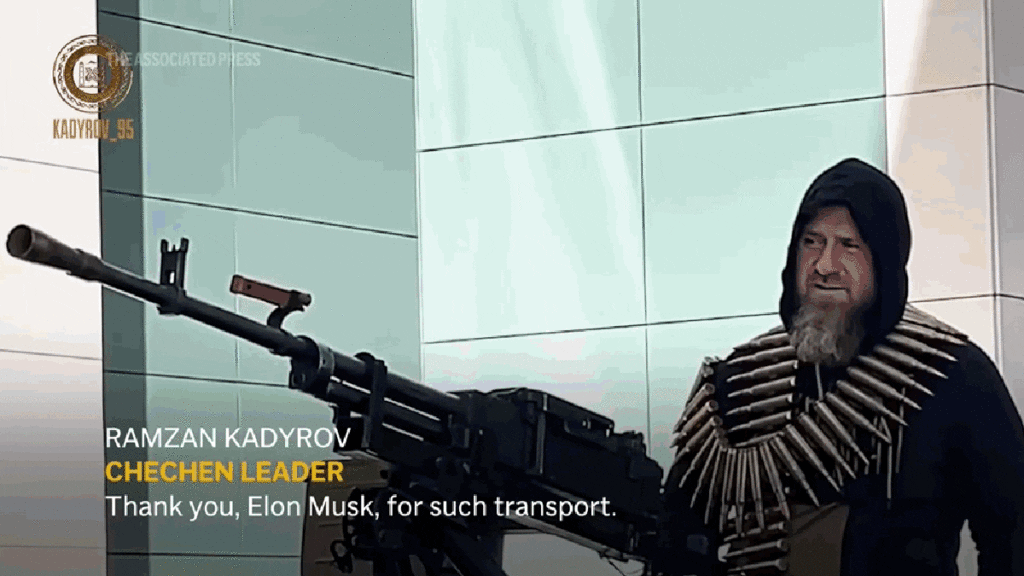Chechen Warlord Claims Elon Musk Disabled Gifted Cybertruck While It Was On The Battlefield

In This Story
Head of the Chechen Republic Ramzan Kadyrov claimed Friday the Tesla Cybertruck supposedly gifted to him personally by Elon Musk was remotely disabled by the very same CEO. Musk denied sending Kadyrov the truck in the first place, but that won’t stop Kadyrov for calling Musk’s supposed move to brick his Cybertruck “unmanly.”
“The Grand Tour: One For The Road” Is An Emotional And Satisfying Finale
The Chechen warlord claims his Cybertruck was deactivated while on the battlefield, turning it into a stainless steel brick that needed to be towed away, Carscoops reports. What was a Cybertruck doing on a battlefield, you may ask? Well, this particular truck was outfitted with a .50 caliber machine gun to fight on the front lines in Ukraine. Social media posts show Kadyrov praising the truck’s stainless steel skin for its protection and how easy it is to drive.
Now it seems that the Cybertruck is disabled, which throughly embarrassed Kadyrov. He’s claiming that Musk himself disabled the Cybertruck. Why? Who knows, but Kadyrov’s pissed and took to Telegram to cry about it.
“Elon Musk behaved badly,” Ramzan Kadyrov, president of Chechnya, a Russian republic, wrote on Telegram. “He gives expensive gifts from the heart and then remotely disconnects them.”
In another post, Carscoops says Kadyrov called the deactivation “not manly.”
“So, Musk recently remotely disabled the Cybertruck,” Kadyrov claimed. “It’s not manly. The iron horse had to be towed. How come, Elon? Is this how it is done?”
Honestly, it is much more likely that the shutdown of Kadyrov’s Cybertruck is just an instance of a Cybertruck being a Cybertruck. Musk denies ever gifting Kadyrov the truck, as a post on Twitter shows. Of course, Elon could be fudging the truth, as there is precedent for the richest man in the world meddling in foreign wars.


